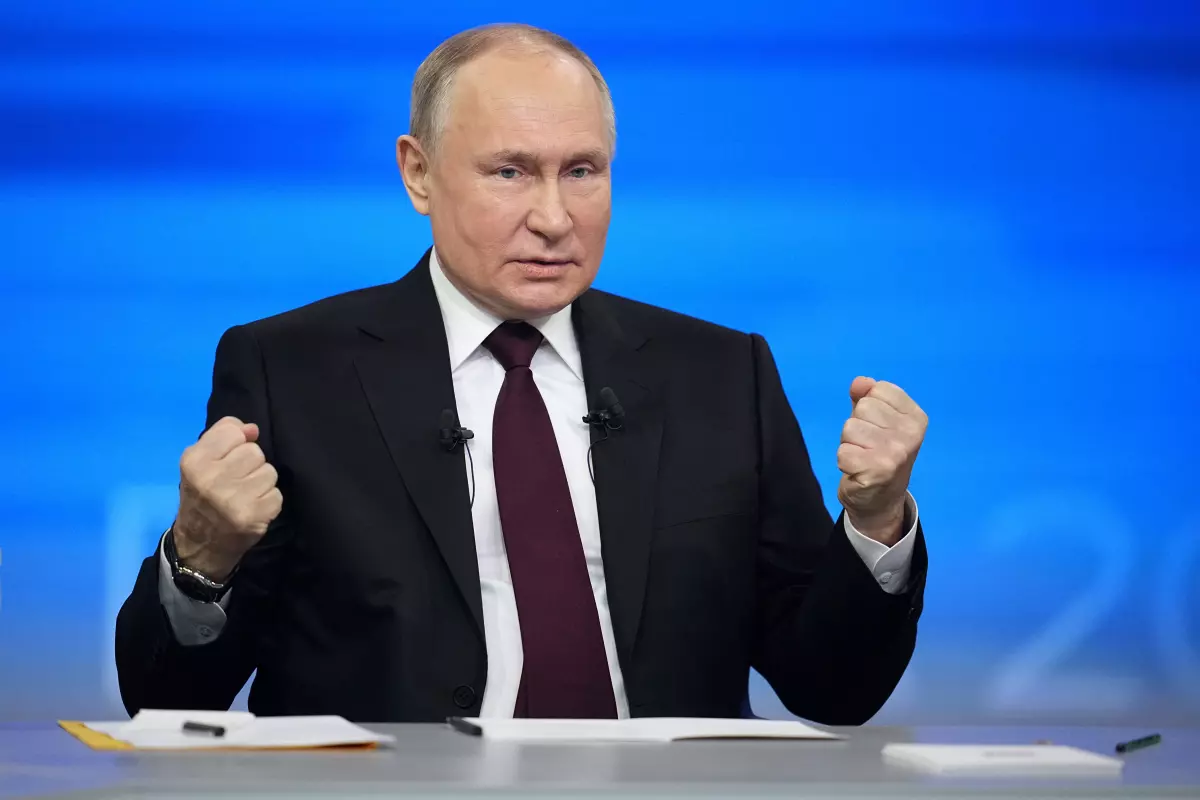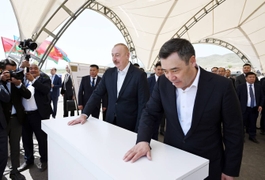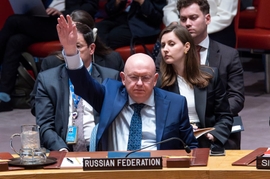Russian President Vladimir Putin made it clear that the ongoing military actions in Ukraine are set to continue until the goals of its “special military operation”, launched in February 2022, are fully realized.
“There will be peace when we achieve our goals … they do not change,” President Putin said in his annual televised press conference in Moscow on Thursday. “Let me remind you what we talked about then: the denazification of Ukraine, its demilitarization, its neutral status.”
In the press conference, President Putin addressed the issue of "denazification" during negotiations with Ukrainian representatives. Putin revealed that the Ukrainian side, in general, did not agree on the necessity of denazification, asserting that there was no observable increase in such sentiments.
“The Ukrainians say that there is no growth in fascist sentiment, but how can that be the case when the Nazi Bandera is a national hero and the head of the Kyiv administration applauds an SS soldier? Isn’t that a manifestation of Nazism?” the Russian president asked rhetorically.
The incident cited by President Putin took place on September 22, 2023, and has since been repeatedly cited by the Kremlin to criticize Ukraine. The controversy stems from the introduction of 98-year-old Ukrainian Yaroslav Hunka as a war hero during a speech by Ukrainian President Volodymyr Zelensky in the Canadian Parliament. House of Commons Speaker Anthony Rota hailed Hunka for his role in fighting for Ukraine's independence against the Russians during World War II.
However, it was later revealed that Hunka had served in the SS 14th Waffen Division, a volunteer unit that was under the command of the Nazis. The revelation prompted Speaker Rota to resign, and Canadian Prime Minister Justin Trudeau issued a formal apology.
Russia, in turn, demanded Hunka's extradition, accusing him of genocide. The allegations date back to a specific period from February 23 to February 28, 1944, during which Hunka and his colleagues are alleged to have been involved in the killing of at least 500 citizens of the USSR.
"As for demilitarization, if they don't want to come to an agreement, then we are forced to take other measures, including military ones,” Putin added. “Or we will agree on certain terms.”
“By the way, we agreed on these (demilitarization) in talks in Istanbul. But, those agreements were scrapped. There are other possibilities — either reach an agreement or resolve it by force. This is what we will strive for," he added.
He also gave a positive assessment of the war, saying that Russia had strengthened its defensive positions along the frontlines.
The current war began when Russia’s troops entered Ukraine, claiming it was protecting the people of two self-proclaimed separatist-controlled regions of Ukraine allegedly being attacked by the Ukrainian military.
Since then, a series of rounds of peace talks had been held. Each round concluded without a successful agreement. Officials in Kyiv, sceptical of Russia's commitment to peace, refused dialogue after the 2022 Ukrainian eastern counteroffensive.
President Zelensky said ceasefire negotiations with Moscow can only begin once the Russian military completely pulls out of his country.







 President Ilham Aliyev shed light on the evolving contours of the peace process with Armenia during an international conference in Baku this week. ...
President Ilham Aliyev shed light on the evolving contours of the peace process with Armenia during an international conference in Baku this week. ...
 Azerbaijan and Armenia started the process of demarcation of their border on Tuesday, with the installation of the first border markers based on ge...
Azerbaijan and Armenia started the process of demarcation of their border on Tuesday, with the installation of the first border markers based on ge...
 Iran and Pakistan have signed eight cooperation documents in various fields, and agreed to strengthen ties to fight terrorism in the region.
Iran and Pakistan have signed eight cooperation documents in various fields, and agreed to strengthen ties to fight terrorism in the region.
 Iranian President Ebrahim Raisi expressed Tehran’s readiness to participate in significant development projects in Sri Lanka during the inauguratio...
Iranian President Ebrahim Raisi expressed Tehran’s readiness to participate in significant development projects in Sri Lanka during the inauguratio...
 As the conflict between Ukraine and Russia escalates, the strategic importance of Kharkiv, Ukraine's second-largest city, has come sharply into focus.
As the conflict between Ukraine and Russia escalates, the strategic importance of Kharkiv, Ukraine's second-largest city, has come sharply into focus.



